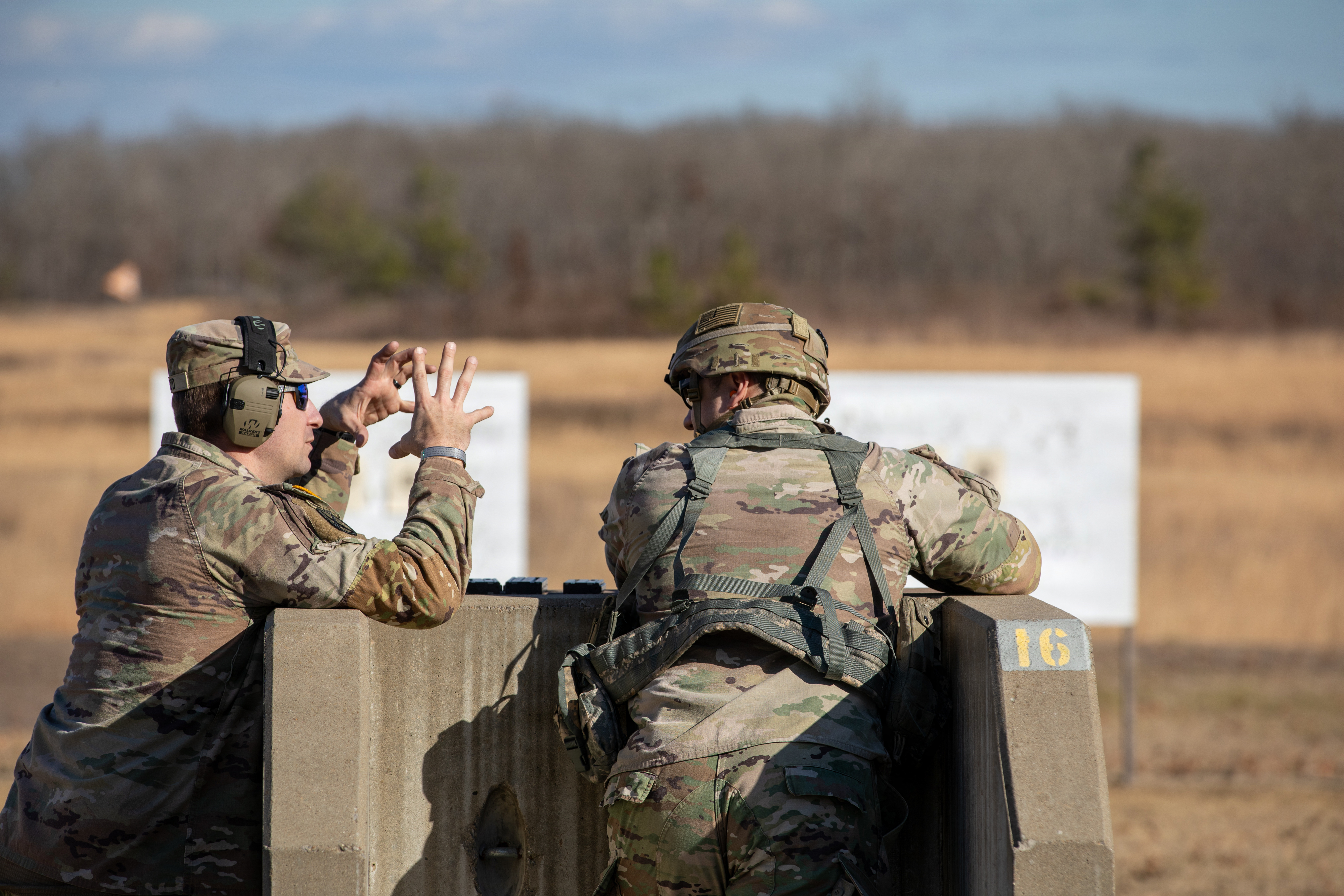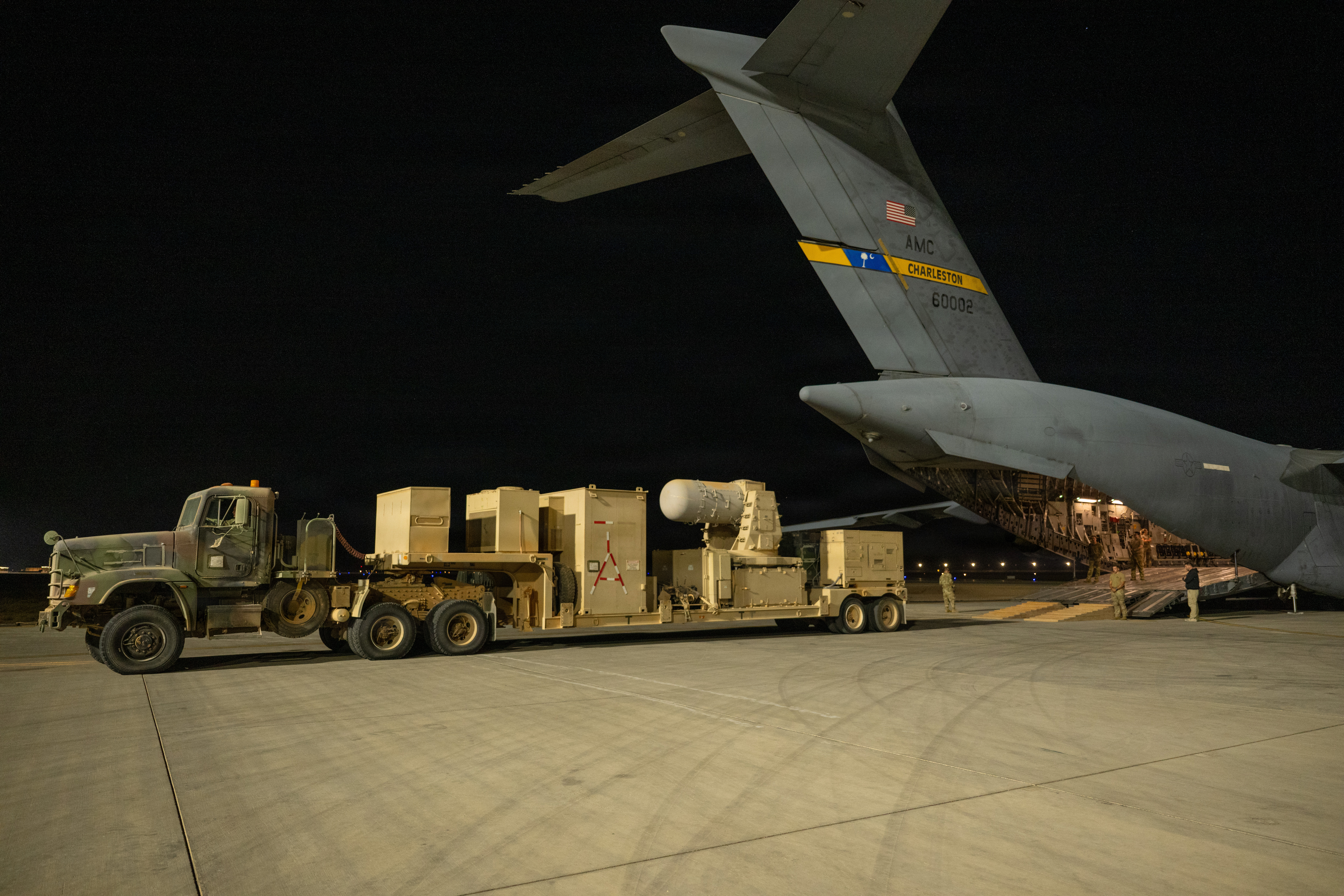Leadership in the Tactical Operations Center
We’re at the brigade tactical operations center (TOC) during a rotation at the Joint Multinational Readiness Center. It is day 3 of the battle against the Skolkan Alliance and the brigade is bracing itself for the Skolkan attack on our main defensive line. The brigade TOC is embroiled in affecting the brigade’s deep fight to set the conditions for the brigade’s close fight. The TOC is controlled chaos. Each individual is like a cog within the machine, turning together to move the brigade closer to mission success. Every hour the staff huddles for a two-minute drill to realign themselves to be in concert with their cohorts. Everyone is receptive and openly communicating information to drive operations. We’re all contributing to a fighting TOC that is gaining the initiative over the enemy and effectively disrupting the enemy’s decision-making cycle to enable mission accomplishment.
This kind of success isn’t a coincidence: it’s the product of deliberate actions and decisions by each individual to operate as a member of a team. Everyone plays a significant role in promulgating a positive culture within the high-stress environment that categorizes a TOC. The following list is a small but a critical set of personal skills necessary for each individual to make a TOC into team that operates effectively to accomplish the mission.
Informed. Current operations may be responsible for the current fight, but they should be fully read-on to the plan and memorize essential triggers for accomplishing the mission. Don’t be the officer that is figuring out the plan as the fight develops; you’ll be behind before the fight begins. This means you’ll need to regularly interact with your planning counterpart to get the information you need to execute. Be engaged in the plans process so that you can rapidly make decisions and maintain tempo once the fight begins. Additionally, ensure you know all aspects of the plan, not just the parts that pertain to your war-fighting function. There is generally overlap between war-fighting functions during execution that will necessitate your understanding of the plan as a whole.
Anticipatory. An effective officer in the TOC has considered additional contingencies, branches, and sequels not addressed in the plan. The officer then mentally rehearses their actions/reactions to those contingencies, branches, and sequels to best prepare themselves for likely deviations from the initial assessment. As we all know, plans rarely survive first contact.
Preparation goes hand-in-hand with being anticipatory. I recommend asking yourself what physical resources you will need in the TOC to battle track: do you need map markers, notepad and paper, stencils, power supplies, and/or doctrinal references? Don’t assume anyone will solicit you for what you need. Identify those resources early and get them before you need them.
Communicative. Leaders in the TOC are responsible for receiving, analyzing, disseminating, and synchronizing. None of these things are possible without being an effective communicator. An effective communicator can receive data, distill that data into actionable information/intelligence, understand who needs to know that information/intelligence, and rapidly distribute that information/intelligence to those who need to know it. I suggest that every time you receive data, you immediately ask yourself two questions: What does this information mean and who else needs to know this information? Follow those questions with a concerted effort to inform those you’ve identified as having need to know. An implied task within being communicative is being analytical. Be careful about what information you share. As important as it is to keep all parties informed to the most up to date information, you have to act as a sieve on the data you are receiving and disseminating. Sometimes reports from first contact will be incorrect; if a report seems unlikely or incorrect, don’t continue to share that information. Exercise tactical patience and allow the situation to develop, then disseminate the report.
Cooperative. The TOC is a place filled with intense energy. It’s go time for your unit and everyone is on edge because our men and women are getting ready to close with and destroy our nation’s enemies. There are times when you will need to hold the line on something you believe, but there are many other times when you need to cooperate with the other members of the TOC. Everyone will be in close quarters and everyone will be anxious. Don’t allow yourself to be prideful; this isn’t the time nor place for you to assert yourself for the sake of your image. If you don’t like the way someone spoke to you, compartmentalize your feelings and talk about it offline after the mission is complete and you are not within hearing proximity of other people you work with. Don’t take anything that is said/done in the heat of the moment personally. Let your frustration be a practical exercise in empathy. Give everyone the benefit of the doubt and acknowledge the fact that everyone in that tent is carrying the burden of someone’s life in addition to the mission’s success or failure on their shoulders.
Confident. As your war-fighting function’s primary representative in the TOC, you are now the resident subject matter expert on anything and everything remotely related to your war-fighting function. You will be the first person anyone in the TOC defers to when they have a question/comment/concern that falls within the realm of your war-fighting function. You are there to inform and advise your leadership on the employment and status of your war-fighting function, therefore you need to be confident in yourself and your knowledge to address others’ concerns. As a junior officer, you will interact with senior leaders regularly while operating in the TOC. When it becomes necessary to address a senior leader, maintain your integrity and give your honest assessment. If you disagree with a senior leader, state your case and supporting facts to that leader. Prior to addressing a senior leader in the TOC, I would take a moment to gather my thoughts, collect my facts, and write down my recommendations so that I could project confidence and speak from a position of reason rather than emotion. With that being said, remember that being cooperative is also important. Choose your battles wisely. Constantly arguing with others in the TOC or being unnecessarily obtuse will make you look incompetent and ultimately render your services useless, as others would rather forego interacting with you.
You cannot control other people, but you can influence them through your demeanor and actions. This is particularly apparent in a TOC, where everything you do will be watched and scrutinized by your subordinates, peers, and superiors. Cultivate the above skills and you will likely be a strong force for good in your TOC. Other members of the TOC will begin to look to you, regardless of your position, for your leadership. You will set yourself apart as someone who understands what needs to be done and can bring together a group of individuals to operate as a team for the sake of the unit’s success.
(Photo: 1st Armored Brigade Combat Team, 1st Cavalry Division leaders gather in the TOC to discuss the current fight during Combined Resolve XI Force-on-Force in Hohenfels, DEU. Photo by PFC Hayden Allega courtesy of DVIDS.)
———
Rose Bernheim is currently an intelligence officer stationed at Fort Hood, TX assigned to the 1st Armored Brigade Combat Team, 1st Cavalry Division. She holds a Bachelor of Arts from Norwich University. The views expressed here are the author’s alone and do not reflect those of the U.S. Army or the Department of Defense.



